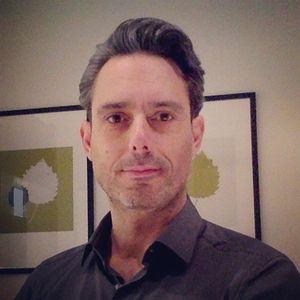Practical Applications of Complexity in Software & Digital Products Development
These unusual times, of sudden change and uncertainty, remind of the relevance of Complexity in the modern organisations and work environment. This session presents examples and an overview of practices inspired by Complexity, to be employed every day in software and digital products development. It also outlines the landscape of Complexity inspired practices, organised in three major regions: the teams, the work to do, and the whole organisation.
These practices provide a new means to gradually introducing our co-workers, our teams and our organisation to Complexity. They exemplify a new approach that consists of acting our way into the new Complexity thinking. This new approach shifts up-side-down the centre of gravity of the conversation around Complexity from the theory to the practice. It puts the practice front-and-centre. And it wants to engage hands-on practitioners and tinkerers.
All the practices presented are based on social complexity and anthro-complexity. Therefore, they fully recognise the unique qualities of the human element. And that we are not algorithms, cellular automata, nor hives.
Complexity science with Lean and Agile Software Development are the three pillars of modern ways of working. So this session is relevant to any serious Agile practitioner. This session is based on the new book Living Complexity. It is interactive and includes online activities and conversations.
The practices and related exercises are from the lists below:
Region 1: The team(s)
------------------------------------------------
Self-organisation
- Basic model (by Joseph Pelrine)
- Heat model (by Joseph Pelrine)
- Flow model (by Joseph Pelrine)
- ABIDE model (by Dave Snowden)
Region 2: The work
------------------------------------------------
Sensing Complexity
- Sensing Complexity (by Luca Minudel)
- Estimating Complexity (by Liz Keogh)
- Complexity Estimation for a delivery initiative (by Luca Minudel)
- Four points method (by Dave Snowden)
Adapting to Complexity
- RUDE estimation (by Dean Latchana)
- Cynefin for decision making (by Dave Snowden)
- C2 Approach Space (by David Alberts)
- Estimates Accuracy with the Cone of uncertainty (by Luca Minudel)
Region 3: The whole organisation
------------------------------------------------
- Red Team technique (by Dean Latchana)
- Culture affinity assessment (by Luca Minudel)
- Lean Inception (by ThoughtWorks)
This workshop is for team members, facilitators (e.g. Scrum Masters and Agile Coaches), Managers and Leaders.
All the participants will receive
-a copy of the book https://leanpub.com/livingcomplexity/
-the slides and material used in this workshop.
-a subscription to a slack-channel where they can share their experiences applying the practices learned, and ask for help, tips and suggestions.

Luca Minudel is a Lean-Agile Coach & Trainer with 17 years of experience in Lean/Agile and 20+ in professional software delivery.
He is passionate about agility, lean, complexity science, and co-creation.
He contributed to the adoption of lean and agile practices by Ferrari's F1 racing team. For ThoughtWorks he delivered training, coaching, assessments and organisational transformations in top-tier organisations in Europe and the United States. He worked as Head of Agility, Agile Transformation Lead, Lean/Agile Practice Lead, and as Lean/Agile Coach in companies such as HSBC, Lloyds, LexisNexis.
Luca is the founder and CEO at SmHarter.com, a company that helps organisations turn their way of working into their competitive advantage.